
-
Presenter Biographies
-
Ambassador (ret.) Luis C.deBaca
Modern Day Slavery and Trafficking Fellow and Robina Fellow, Gilder Lerhman Center, Yale University
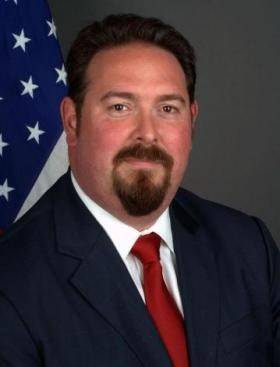 Former Prosecutor in the Civil Rights Division of the U.S. Department of Justice
Former Prosecutor in the Civil Rights Division of the U.S. Department of Justice
U.S. Ambassador at Large to Monitor and Combat Trafficking in Persons, U.S. Department of State, 2012-2018Ambassador (ret.) Luis C.deBaca coordinated U.S. government activities in the global fight against contemporary forms of slavery as head of the State Department’s Office to Monitor and Combat Trafficking in Persons during the Obama Administration. As one of the United States’ most decorated federal prosecutors, Ambassador C.deBaca updated the post-Civil War statutes and the 13th Amendment to develop the “victim centered approach” to modern slavery, which has become the global standard for combating human trafficking.
-
Danilo Balladares
Lead Organizer, Seafood Workers Alliance
 Oscar “Danilo” Balladares is the lead organizer for the Seafood Workers’ Alliance, a project of the New Orleans Workers’ Center for Racial Justice (NOWCRJ). He joined NOWCRJ in 2017, and since then Danilo has led the state-wide organizing of seafood migrant workers and guestworkers in rural Louisiana to improve working conditions across the industry. He also directs a state-wide campaign to eliminate barriers to local governments raising labor standards in Louisiana. Before joining NOWCRJ, he advanced progressive causes through community and electoral organizing for over a decade in South Florida, where he is from.
Oscar “Danilo” Balladares is the lead organizer for the Seafood Workers’ Alliance, a project of the New Orleans Workers’ Center for Racial Justice (NOWCRJ). He joined NOWCRJ in 2017, and since then Danilo has led the state-wide organizing of seafood migrant workers and guestworkers in rural Louisiana to improve working conditions across the industry. He also directs a state-wide campaign to eliminate barriers to local governments raising labor standards in Louisiana. Before joining NOWCRJ, he advanced progressive causes through community and electoral organizing for over a decade in South Florida, where he is from. -
Robert Chase
History, Stonybrook University
 Robert T. Chase is associate professor of history at Stony Brook University, State University of New York (SUNY). He is the author of We Are Not Slaves: State Violence, Coerced Labor, and Prisoners Rights in Postwar America (UNC, JPP, 2019). He is also the editor of Caging Borders and Carceral States: Incarcerations, Immigration Detentions, and Resistance (UNC Press, JPP, 2019). His work has been published in the Journal of Urban History, the Journal of American History, and a chapter in the anthology The New, New South (University Press of Florida, 2012). He is the recipient of the E.B. and Jean Smith prize for best dissertation in political history and his research has been funded through postdoctoral fellowships with Southern Methodist University, Case Western Reserve University, and Rutgers University. In 2017, he was a research fellow at the Humanities Institute at the University of Connecticut. As a public intellectual, his work on the history of prison and policing reform and state violence has been featured on national media programs through radio, newspapers, and television (MSNBC, CNN, and NPR, Newsweek, Washington Post).
Robert T. Chase is associate professor of history at Stony Brook University, State University of New York (SUNY). He is the author of We Are Not Slaves: State Violence, Coerced Labor, and Prisoners Rights in Postwar America (UNC, JPP, 2019). He is also the editor of Caging Borders and Carceral States: Incarcerations, Immigration Detentions, and Resistance (UNC Press, JPP, 2019). His work has been published in the Journal of Urban History, the Journal of American History, and a chapter in the anthology The New, New South (University Press of Florida, 2012). He is the recipient of the E.B. and Jean Smith prize for best dissertation in political history and his research has been funded through postdoctoral fellowships with Southern Methodist University, Case Western Reserve University, and Rutgers University. In 2017, he was a research fellow at the Humanities Institute at the University of Connecticut. As a public intellectual, his work on the history of prison and policing reform and state violence has been featured on national media programs through radio, newspapers, and television (MSNBC, CNN, and NPR, Newsweek, Washington Post). -
Guadalupe Correa-Cabrera
Woodrow Wilson Center & George Mason University
 Guadalupe Correa-Cabrera is Associate Professor in the Schar School of Policy and Government at George Mason University. Her areas of expertise are Mexico-US relations, organized crime, immigration, border security, and human trafficking. Her newest book is titled Los Zetas Inc.: Criminal Corporations, Energy, and Civil War in Mexico (University of Texas Press, 2017). She is Past President of the Association for Borderlands Studies (ABS). She is also Global Fellow at the Woodrow Wilson International Center for Scholars and Non-resident Scholar at the Baker Institute’s Mexico Center (Rice University). Correa-Cabrera is co-editor of the International Studies Perspectives (ISP) journal.
Guadalupe Correa-Cabrera is Associate Professor in the Schar School of Policy and Government at George Mason University. Her areas of expertise are Mexico-US relations, organized crime, immigration, border security, and human trafficking. Her newest book is titled Los Zetas Inc.: Criminal Corporations, Energy, and Civil War in Mexico (University of Texas Press, 2017). She is Past President of the Association for Borderlands Studies (ABS). She is also Global Fellow at the Woodrow Wilson International Center for Scholars and Non-resident Scholar at the Baker Institute’s Mexico Center (Rice University). Correa-Cabrera is co-editor of the International Studies Perspectives (ISP) journal. -
Grace Peña Delgado
History, University of California - Santa Cruz
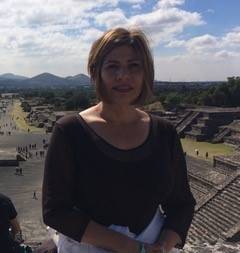 Grace Peña Delgado is Associate Professor of History at the University of California, Santa Cruz. She is the author of Making the Chinese Mexican: Global Migration, Localism, and Exclusion in the US-Mexico Borderlands (Stanford, 2012), distinguished as a CHOICE Academic Title, and a forthcoming work, States Against Sex: Consent and Migration in the Policing of America’s Borderlands. Delgado is also co-author of a Latino Immigrants in the United States (Polity, 2011). She is also working on a new book, To Open Our Borders: America’s New Conversation About Immigration (The New Press).Her piece in the Western Historical Quarterly, “Border Control and Sexual Policing” received numerous best article awards.
Grace Peña Delgado is Associate Professor of History at the University of California, Santa Cruz. She is the author of Making the Chinese Mexican: Global Migration, Localism, and Exclusion in the US-Mexico Borderlands (Stanford, 2012), distinguished as a CHOICE Academic Title, and a forthcoming work, States Against Sex: Consent and Migration in the Policing of America’s Borderlands. Delgado is also co-author of a Latino Immigrants in the United States (Polity, 2011). She is also working on a new book, To Open Our Borders: America’s New Conversation About Immigration (The New Press).Her piece in the Western Historical Quarterly, “Border Control and Sexual Policing” received numerous best article awards. -
Rosario “Chayito” Elizalde
Seafood Workers’ Alliance, La Lista Negra: Overcoming Fears, the Blacklist and Borders
Rosario Elizalde is a founder and elected Vice President of the Seafood Workers’ Alliance, a project of the New Orleans Workers’ Center for Racial Justice. Rosario is from Topolobambo in Sinaloa, Mexico. She currently lives and works in Baton Rouge, Louisiana and has worked in the seafood industry for 12 years. She has been organizing in the seafood industry for 12 years, informing workers of their rights and supporting them in efforts to improve industry conditions. She also sits on the Board of Directors of the NOWCRJ.
-
Annie Isabel Fukushima
Ethnic Studies, University of Utah
 Dr. Annie Isabel Fukushima is an Assistant Professor of Ethnic Studies in the School for Cultural & Social Transformation at University of Utah. She earned her Ph.D. in Ethnic Studies with a Designated Emphasis in Women, Gender & Sexuality Studies from University of California, Berkeley. She was an Andrew W. Mellon Postdoctoral Fellow at Rutgers University (2013 – 2015). Fukushima is the author of Migrant Crossings: Witnessing Human Trafficking in the US (Stanford University Press, 2019). Her scholarly works that have appeared in peer-review journals Praxis (Formerly known as Phoebe): Gender & Culture Critiques (2008), Frontiers: Journal of Women Studies (2015), Feminist Formations (2016), VOCI: Human Sciences Semi-Annual (2018), Biography (2019), and edited anthologies Human Trafficking Reconsidered: Rethinking the Problem, Envisioning New Solutions(2014), Documenting Gendered Violence (2015), Gender: War (2017), and The Subject(s) of Human Rights: Crises, Violations, & Asian American Critique (2019). She co-edits an on-line publishing site Migratorytimes.net.
Dr. Annie Isabel Fukushima is an Assistant Professor of Ethnic Studies in the School for Cultural & Social Transformation at University of Utah. She earned her Ph.D. in Ethnic Studies with a Designated Emphasis in Women, Gender & Sexuality Studies from University of California, Berkeley. She was an Andrew W. Mellon Postdoctoral Fellow at Rutgers University (2013 – 2015). Fukushima is the author of Migrant Crossings: Witnessing Human Trafficking in the US (Stanford University Press, 2019). Her scholarly works that have appeared in peer-review journals Praxis (Formerly known as Phoebe): Gender & Culture Critiques (2008), Frontiers: Journal of Women Studies (2015), Feminist Formations (2016), VOCI: Human Sciences Semi-Annual (2018), Biography (2019), and edited anthologies Human Trafficking Reconsidered: Rethinking the Problem, Envisioning New Solutions(2014), Documenting Gendered Violence (2015), Gender: War (2017), and The Subject(s) of Human Rights: Crises, Violations, & Asian American Critique (2019). She co-edits an on-line publishing site Migratorytimes.net. -
Volker Janssen
History, California State University, Fullerton
 Volker Janssen is Professor of History at California State University Fullerton. His research on California’s prison policies and their relationship to the state’s political economy is forthcoming in Convict Labor, Civic Welfare: Prisons and Rehabilitation in Mid-Twentieth Century America with Oxford University Press. His essays on California’s prison history have also appeared in Osiris and the Journal of American History. Janssen is the editor of Where Minds and Matters Meet: Technology in California and the West (Berkeley: UC Press, 2012) which explores the relationship between technological paradigms and place in the American West and the Golden State. He has also published in economic history, as with ”A Tale of Two Crises: A Comparative View of the Political Economy of the Great Depression and Great Recession,” in Sheila D. Collins and Gertrude Schaffner Goldberg (eds.), When Government Helped: Learning from the Successes and Failures of the New Deal.
Volker Janssen is Professor of History at California State University Fullerton. His research on California’s prison policies and their relationship to the state’s political economy is forthcoming in Convict Labor, Civic Welfare: Prisons and Rehabilitation in Mid-Twentieth Century America with Oxford University Press. His essays on California’s prison history have also appeared in Osiris and the Journal of American History. Janssen is the editor of Where Minds and Matters Meet: Technology in California and the West (Berkeley: UC Press, 2012) which explores the relationship between technological paradigms and place in the American West and the Golden State. He has also published in economic history, as with ”A Tale of Two Crises: A Comparative View of the Political Economy of the Great Depression and Great Recession,” in Sheila D. Collins and Gertrude Schaffner Goldberg (eds.), When Government Helped: Learning from the Successes and Failures of the New Deal. -
Manu Karuka
American Studies, Barnard
 Manu Karuka is the author of Empire's Tracks: Indigenous Nations, Chinese Workers, and the Transcontinental Railroad (University of California Press, 2019). He is a co-editor of “On Colonial Unknowing,” a special issue of Theory & Event, and a co-editor of The Sun Never Sets: South Asian Migrants in an Age of U.S. Power (NYU Press, 2013). His work appears in Critical Ethnic Studies, J19, Settler Colonial Studies, The Settler Complex: Recuperating Binarism in Colonial Studies (edited by Patrick Wolfe), and Formations of United States Colonialism (edited by Alyosha Goldstein). He is an assistant professor of American Studies at Barnard College.
Manu Karuka is the author of Empire's Tracks: Indigenous Nations, Chinese Workers, and the Transcontinental Railroad (University of California Press, 2019). He is a co-editor of “On Colonial Unknowing,” a special issue of Theory & Event, and a co-editor of The Sun Never Sets: South Asian Migrants in an Age of U.S. Power (NYU Press, 2013). His work appears in Critical Ethnic Studies, J19, Settler Colonial Studies, The Settler Complex: Recuperating Binarism in Colonial Studies (edited by Patrick Wolfe), and Formations of United States Colonialism (edited by Alyosha Goldstein). He is an assistant professor of American Studies at Barnard College. -
William Kiser
History, Texas A&M University – San Antonio
 Billy Kiser received his Ph.D. in 2016 from Arizona State University and currently teaches courses in U.S. history and the American West. His research involves the 19th Century Southwest Borderlands, focusing on the Indian Wars, slavery and peonage, and the Civil War era. He is the author of four books: Coast-to-Coast Empire: Manifest Destiny and the New Mexico Borderlands (Oklahoma, 2018); Borderlands of Slavery: The Struggle over Captivity and Peonage in the American Southwest (Pennsylvania, 2017); Dragoons in Apacheland: Conquest and Resistance in Southern New Mexico, 1846-1861 (Oklahoma, 2013), and Turmoil on the Rio Grande: The Territorial History of the Mesilla Valley, 1846-1865 (Texas A&M, 2011).
Billy Kiser received his Ph.D. in 2016 from Arizona State University and currently teaches courses in U.S. history and the American West. His research involves the 19th Century Southwest Borderlands, focusing on the Indian Wars, slavery and peonage, and the Civil War era. He is the author of four books: Coast-to-Coast Empire: Manifest Destiny and the New Mexico Borderlands (Oklahoma, 2018); Borderlands of Slavery: The Struggle over Captivity and Peonage in the American Southwest (Pennsylvania, 2017); Dragoons in Apacheland: Conquest and Resistance in Southern New Mexico, 1846-1861 (Oklahoma, 2013), and Turmoil on the Rio Grande: The Territorial History of the Mesilla Valley, 1846-1865 (Texas A&M, 2011).Kiser’s next book, under contract with the University of Pennsylvania Press, will deal with Civil War diplomacy in the U.S.-Mexico Borderlands.
-
Julian Lim
History, Arizona State University
 Julian Lim is an assistant professor of History at Arizona State University (Tempe). Trained in history and law, she focuses on immigration, borders, and race. Lim's first, award-winning book, Porous Borders: Multiracial Migrations and the Law in the U.S.-Mexico Borderlands (University of North Carolina Press, 2017), examined the history of diverse immigrants in the U.S.-Mexico borderlands, and the development of immigration policy and law on both sides of the border. She is a recipient of several awards and grants, and will be a fellow at the Stanford Humanities Center in 2019-20, during which time she will continue working on her next book project about marriage priorities in U.S. immigration law.
Julian Lim is an assistant professor of History at Arizona State University (Tempe). Trained in history and law, she focuses on immigration, borders, and race. Lim's first, award-winning book, Porous Borders: Multiracial Migrations and the Law in the U.S.-Mexico Borderlands (University of North Carolina Press, 2017), examined the history of diverse immigrants in the U.S.-Mexico borderlands, and the development of immigration policy and law on both sides of the border. She is a recipient of several awards and grants, and will be a fellow at the Stanford Humanities Center in 2019-20, during which time she will continue working on her next book project about marriage priorities in U.S. immigration law. -
Natalie Lira
Latina/Latino Studies, University of Illinois Urbana Champaign
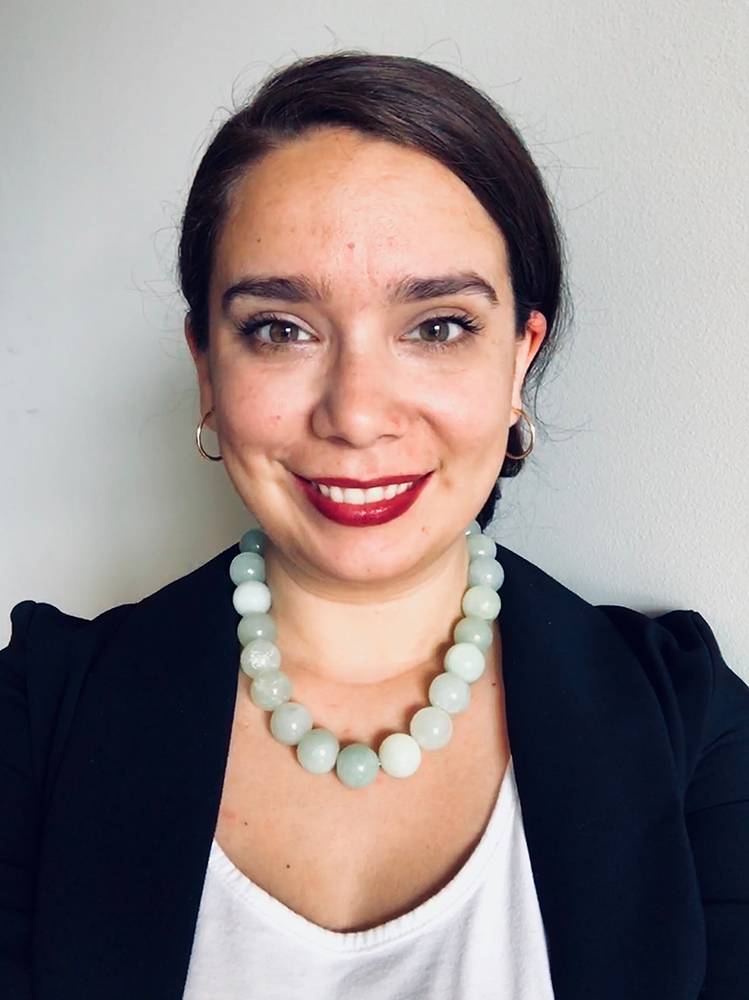 Natalie Lira is an Assistant Professor in the Department of Latina/Latino Studies at the University of Illinois at Urbana-Champaign. She earned her Ph.D. in American Culture from the University of Michigan. Her areas of expertise include the politics of reproduction, critical disability studies, and histories of medicine. Natalie is currently writing a book on Mexican-origin women and men’s experiences of sterilization and confinement in California state institutions during the early to mid-twentieth century. You can find her work in Aztlán: A Journal of Chicano Studies and the American Journal of Public Health.
Natalie Lira is an Assistant Professor in the Department of Latina/Latino Studies at the University of Illinois at Urbana-Champaign. She earned her Ph.D. in American Culture from the University of Michigan. Her areas of expertise include the politics of reproduction, critical disability studies, and histories of medicine. Natalie is currently writing a book on Mexican-origin women and men’s experiences of sterilization and confinement in California state institutions during the early to mid-twentieth century. You can find her work in Aztlán: A Journal of Chicano Studies and the American Journal of Public Health. -
Mary Lui
American Studies and History, Yale University
 Mary Lui is Professor of American Studies and History. Her primary research interests include: Asian American history, urban history, women and gender studies, and public history. She is the author of The Chinatown Trunk Mystery: Murder, Miscegenation, and Other Dangerous Encounters in Turn-of-the-Century New York City (Princeton University Press, 2005). The book uses a 1909 unsolved murder case to examine race, gender, and interracial sexual relations in the cultural, social and spatial formation of New York City Chinatown from 1870-1920.
Mary Lui is Professor of American Studies and History. Her primary research interests include: Asian American history, urban history, women and gender studies, and public history. She is the author of The Chinatown Trunk Mystery: Murder, Miscegenation, and Other Dangerous Encounters in Turn-of-the-Century New York City (Princeton University Press, 2005). The book uses a 1909 unsolved murder case to examine race, gender, and interracial sexual relations in the cultural, social and spatial formation of New York City Chinatown from 1870-1920. -
Ismael Hernandez Martinez
Seafood Workers’ Alliance
Ismael Martinez is a member of the Seafood Workers’ Alliance, a project of the NOWCRJ. He came to the U.S. on an H-2A guestworker visa to work at a crawfish farm and facility in Iota, Louisiana. In 2019, he organized his coworkers to educate themselves about their rights and confront their employer about conditions of forced labor and failure to pay legally owed wages. In response to his organizing, his employer fired him and many other workers and they fear they have been blacklisted, a common practice in the industry. He is the complainant and a key witness to a DOL Wage and Hour Division investigation in his workplace
-
John Mckiernan-González
History and the Center for the Study of the Southwest, Texas State University
 John Mckiernan-Gonzalez is the Director of the Center for the Study of the Southwest, the Jerome and Catherine Supple Professor of Southwestern Studies, and an Associate Professor of History at Texas State University. His first book, Fevered Measures: Public Health and Race at the Texas-Mexico Border, 1848-1942 (Duke: 2012), treats the multi-ethnic making of a U.S. medical border in the Mexico-Texas borderlands. He co-edited the volume, Precarious Prescriptions: Contested Histories of Race and Health in North America (University of Minnesota, 2013) which examines the contradictions and complexities tying medical history and communities of color together. His broad takes on Latina/os in U.S. medical history can be found in the OAH and National Park Service collaborative, American Latinos in the Making of the United States and in Keywords in Latina/o Studies (NYU: 2017). He has worked with the Smithsonian Institution, the Kellogg Foundation, the Nettie Lee Benson Library and AMSA on a variety of collaborative public history projects. His next project, Working Conditions: Medical Authority and Latino Civil Rights tracks the changing place of medicine in Latina/o/x struggles for equality. Born in the U.S., he grew up in Colombia, Mexico, and the U.S. South and brings a migrant eye and experience to his projects in public history, medical history, and Latino studies.
John Mckiernan-Gonzalez is the Director of the Center for the Study of the Southwest, the Jerome and Catherine Supple Professor of Southwestern Studies, and an Associate Professor of History at Texas State University. His first book, Fevered Measures: Public Health and Race at the Texas-Mexico Border, 1848-1942 (Duke: 2012), treats the multi-ethnic making of a U.S. medical border in the Mexico-Texas borderlands. He co-edited the volume, Precarious Prescriptions: Contested Histories of Race and Health in North America (University of Minnesota, 2013) which examines the contradictions and complexities tying medical history and communities of color together. His broad takes on Latina/os in U.S. medical history can be found in the OAH and National Park Service collaborative, American Latinos in the Making of the United States and in Keywords in Latina/o Studies (NYU: 2017). He has worked with the Smithsonian Institution, the Kellogg Foundation, the Nettie Lee Benson Library and AMSA on a variety of collaborative public history projects. His next project, Working Conditions: Medical Authority and Latino Civil Rights tracks the changing place of medicine in Latina/o/x struggles for equality. Born in the U.S., he grew up in Colombia, Mexico, and the U.S. South and brings a migrant eye and experience to his projects in public history, medical history, and Latino studies. -
Colleen O’Neill
History, Utah State University

Colleen O'Neill is an associate professor of history at Utah State University and former coeditor of the Western Historical Quarterly. She received her PhD in history from Rutgers University and her publications include: Working the Navajo Way: Labor and Culture in the Twentieth Century and collection coedited with Brian Hosmer, Native Pathways: American Indian Culture and Economic Development in the Twentieth Century. She has published articles in The Journal of American History, the New Mexico Historical Review, Labor History, and Ethnohistory and essays in edited collections, Indigenous Women and Work: From Labor to Activism, and Indians and Energy: Opportunities and Exploitation. Her current book project, Labor and Sovereignty, examines the changing meaning of wage work for American Indian communities in the twentieth century.
-
April Petillo
Ethnic Studies, Kansas State University
 Sample Publication: "Marking Embodied Borders: Compulsory Settler Sexuality, Indigeneity, and U.S. Law." Women's Studies in Communication Journal 41, 4 (2019), 329-334. DOI: 10.1080/07491409.2018.1544013 .
Sample Publication: "Marking Embodied Borders: Compulsory Settler Sexuality, Indigeneity, and U.S. Law." Women's Studies in Communication Journal 41, 4 (2019), 329-334. DOI: 10.1080/07491409.2018.1544013 .April Petillo, a Kansas State University Assistant Professor of American Ethnic Studies with a Native American/Indigenous Emphasis, engages transdisciplinary, intersectional examinations of contemporary targeted violences and exploitation informed by colonial and conquest logics and legacies. As a scholarly balance, Dr. Petillo also examines ethnoracial resistant/resilient joy found in social movements as well as community defined justice and the law. She regularly combines insight, methods and methodologies in her scholarship encompassing Critical Trafficking Studies, Critical Native and Indigenous Studies, Slavery Studies and Gender and Sexuality Studies with attention to the politics of difference. In her “down time,” she is often in pursuit of the perfect cup of decaffeinated coffee, workout motivation or longish walks with her husband and spirited dog. Dr. Petillo’s newest project is an autoethnographic exploration of identity informed by Brathwaite's The Arrivants (1973) and Miller's “slaving” (2009).
-
Jessica Pliley
 Jessica R. Pliley is an Associate Professor of the History of Women, Genders, and Sexualities at Texas State University and the Book Review Editor of the Journal of Women’s History. She holds a Ph.D. from the Ohio State University. She is the author of Policing Sexuality: The Mann Act and the Making of the FBI (Harvard, 2014) and Global Anti-Vice Activism (Cambridge, 2016). She is the co-director of Yale University’s Working Group on Modern-Day Slavery and Trafficking at the Gilder Lehrman Center for the Study of Slavery, Resistance, and Abolition. Dr. Pliley is a Fulbright specialist and serves on the advisory board of the UK’s Arts and Humanities Research Council funded project Trafficking, Smuggling and Illicit Migration in Gendered and Historical Perspective, c. 1870 – 2000. Her work has appeared in the Journal of Women’s History, the Journal of the Gilded Age and Progressive Era, and the Journal of the History of Sexuality. Her current research explores the long history of anti-trafficking movement from the late nineteenth century to the early twenty-first century. For more information please visit her personal website.
Jessica R. Pliley is an Associate Professor of the History of Women, Genders, and Sexualities at Texas State University and the Book Review Editor of the Journal of Women’s History. She holds a Ph.D. from the Ohio State University. She is the author of Policing Sexuality: The Mann Act and the Making of the FBI (Harvard, 2014) and Global Anti-Vice Activism (Cambridge, 2016). She is the co-director of Yale University’s Working Group on Modern-Day Slavery and Trafficking at the Gilder Lehrman Center for the Study of Slavery, Resistance, and Abolition. Dr. Pliley is a Fulbright specialist and serves on the advisory board of the UK’s Arts and Humanities Research Council funded project Trafficking, Smuggling and Illicit Migration in Gendered and Historical Perspective, c. 1870 – 2000. Her work has appeared in the Journal of Women’s History, the Journal of the Gilded Age and Progressive Era, and the Journal of the History of Sexuality. Her current research explores the long history of anti-trafficking movement from the late nineteenth century to the early twenty-first century. For more information please visit her personal website. -
Cristina Salinas
History and Mexican American Studies, UT Arlington

Cristina Salinas is a native of the Rio Grande Valley in South Texas with deep roots in the border region of South Texas and northern Mexico. After graduating from Edcouch-Elsa High School, Cristina attended the University of Texas at Austin, where she received a BA in history. She returned to UT-Austin for graduate school and earned a Masters and PhD in U.S. history, with a focus on Mexican-American and border history. She lives in Arlington with her husband and young daughter. Her research interests include Mexican American history, border studies, immigration history, agricultural history, labor history, and Texas history. Her book, Managed Migrations (UT: 2018) and her edited book Deportation in the Americas (TAMU: 2018) explore the coercions and resistances that emerge when states seek to manage and exploit the movement of people.
-
Jermaine Thibodeaux
History, University of Texas at Austin and Cambridge School of Weston
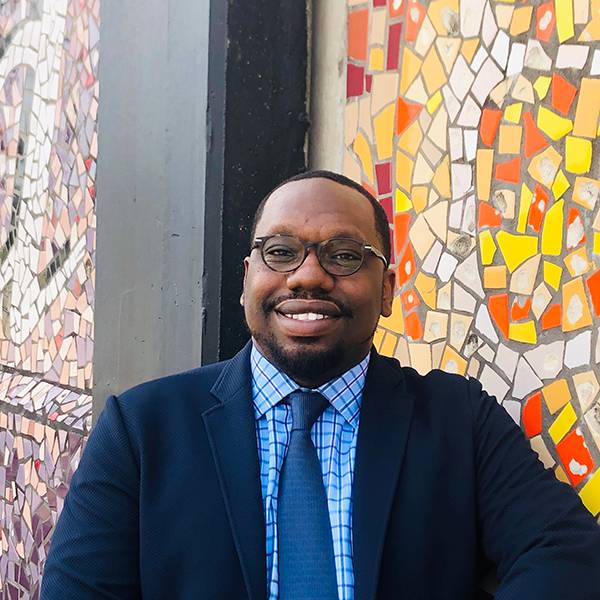 Jermaine Thibodeaux is a doctoral candidate in the Department of History at the University of Texas at Austin and a faculty member at the Cambridge School of Weston. A native of Houston, Texas, Jermaine attended Cornell University, where he was selected as a Mellon-Mays Undergraduate Research Fellow. After earning an A.B. in History, with a certificate in the law and society program, Jermaine returned to Texas to pursue graduate studies in American history. Currently, Thibodeaux’s work examines the role of the Texas sugar industry in the development and expansion of the state's prison system. This includes a central discussion of the impact of black male incarcerations in late nineteenth and early twentieth century Texas and explore how this phenomenon affected Black Texans and their communities writ large. His intellectual interests also broadly include notions of masculinities, criminality, slavery and racial capitalism.
Jermaine Thibodeaux is a doctoral candidate in the Department of History at the University of Texas at Austin and a faculty member at the Cambridge School of Weston. A native of Houston, Texas, Jermaine attended Cornell University, where he was selected as a Mellon-Mays Undergraduate Research Fellow. After earning an A.B. in History, with a certificate in the law and society program, Jermaine returned to Texas to pursue graduate studies in American history. Currently, Thibodeaux’s work examines the role of the Texas sugar industry in the development and expansion of the state's prison system. This includes a central discussion of the impact of black male incarcerations in late nineteenth and early twentieth century Texas and explore how this phenomenon affected Black Texans and their communities writ large. His intellectual interests also broadly include notions of masculinities, criminality, slavery and racial capitalism. -
Melissa Irene Maldonado Torres
Global Mental Health, Baylor College of Medicine
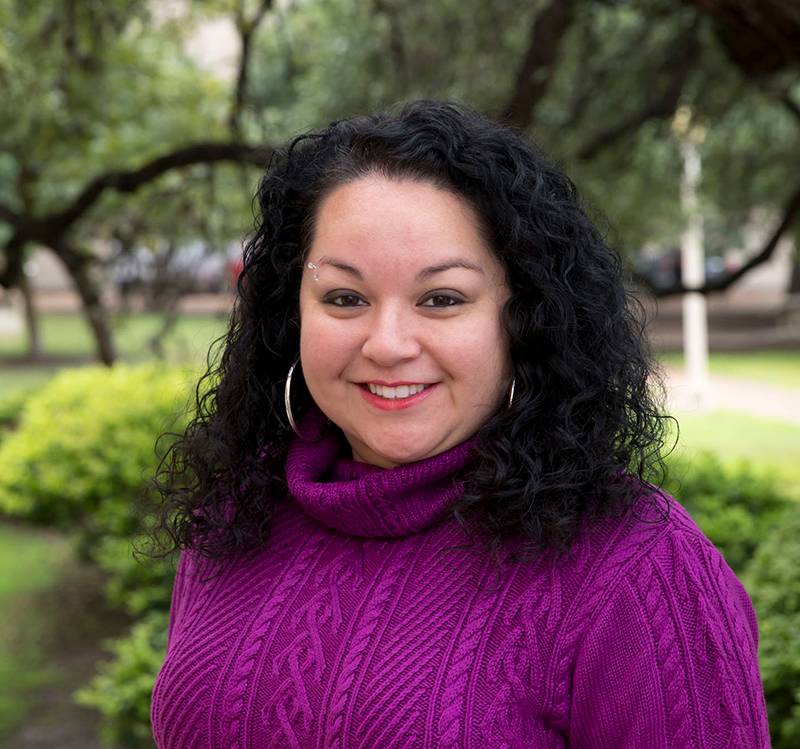 Melissa Irene Maldonado Torres, Ph.D., is research faculty at the Baylor College of Medicine Global Mental Health Division with the Anti-Human Trafficking Program. She received her Master’s and Doctorate at the University of Houston Graduate College of Social Work where she is adjunct faculty and co-founder of the college’s Latin American Initiative, a learning abroad program in collaboration with universities and NGOs throughout Latin America. She previously served as the Director of the Human Trafficking Research Portfolio and Director of Equity, Inclusion, and Diversity in Research at the University of Texas at Austin’s Institute on Domestic Violence and Sexual Assault at the Steve Hicks School of Social Work. She was a doctoral fellow with the Council on Social Work Education’s Minority Fellowship Program, and a selected fellow in Minority Disparities Research with the Center for Urban African American Aging Research, both sponsored by the Department of Health and Human Services Substance Abuse and Mental Health Services Administration. She served as the Deputy Director of the American Red Cross Latino Engagement Initiative. She is a United Nations delegate for the Academic Council of the United Nations System and Vice President of the Women’s International League for Peace and Freedom (WILPF), the world’s first feminist peace organization and consultant to the United Nations.
Melissa Irene Maldonado Torres, Ph.D., is research faculty at the Baylor College of Medicine Global Mental Health Division with the Anti-Human Trafficking Program. She received her Master’s and Doctorate at the University of Houston Graduate College of Social Work where she is adjunct faculty and co-founder of the college’s Latin American Initiative, a learning abroad program in collaboration with universities and NGOs throughout Latin America. She previously served as the Director of the Human Trafficking Research Portfolio and Director of Equity, Inclusion, and Diversity in Research at the University of Texas at Austin’s Institute on Domestic Violence and Sexual Assault at the Steve Hicks School of Social Work. She was a doctoral fellow with the Council on Social Work Education’s Minority Fellowship Program, and a selected fellow in Minority Disparities Research with the Center for Urban African American Aging Research, both sponsored by the Department of Health and Human Services Substance Abuse and Mental Health Services Administration. She served as the Deputy Director of the American Red Cross Latino Engagement Initiative. She is a United Nations delegate for the Academic Council of the United Nations System and Vice President of the Women’s International League for Peace and Freedom (WILPF), the world’s first feminist peace organization and consultant to the United Nations.Of Mexican descent, Dr. Torres is a native of the Rio Grande Valley of Texas and was raised on the U.S.-Mexico border. She resides in Houston.
-
Sabina Eva Maria H-F Trejo
Seafood Workers Alliance
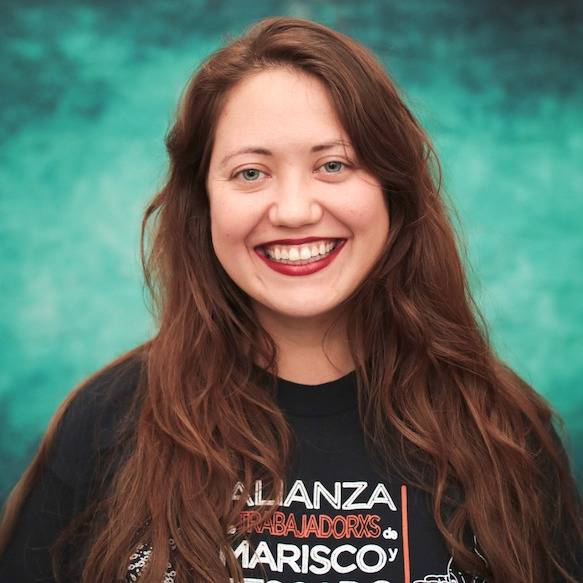 Sabina Eva Maria H-F Trejo is an organizer for the Seafood Workers' Alliance (SWA), a project of the New Orleans Workers' Center for Racial Justice (NOWCRJ). She anchors the SWA’s organizing work to promote policies that support migrant survivors in speaking out and to end the entanglement of local law enforcement with ICE, “la poli-migra,” in rural Louisiana. For 8 years before joining NOWCRJ, she organized in migrant and worker justice movements across the Southern U.S. and Mexico border, where she also honed her skills developing and facilitating popular education initiatives. Sabina enjoys learning about the root causes of forced labor and other forms of workforce exploitation with SWA members, and dreaming together about otro mundo, sin fronteras.
Sabina Eva Maria H-F Trejo is an organizer for the Seafood Workers' Alliance (SWA), a project of the New Orleans Workers' Center for Racial Justice (NOWCRJ). She anchors the SWA’s organizing work to promote policies that support migrant survivors in speaking out and to end the entanglement of local law enforcement with ICE, “la poli-migra,” in rural Louisiana. For 8 years before joining NOWCRJ, she organized in migrant and worker justice movements across the Southern U.S. and Mexico border, where she also honed her skills developing and facilitating popular education initiatives. Sabina enjoys learning about the root causes of forced labor and other forms of workforce exploitation with SWA members, and dreaming together about otro mundo, sin fronteras. -
Martha Uvalle
Seafood Workers’ Alliance, #Walmartstrikers: Supply chain Organizing in Rural Louisiana
Martha Uvalle is a member leader of the Seafood Workers’ Alliance, a project of the NOWCRJ. In 2012, she came to the U.S. on an H-2B guestworker visa to work at CJ’s Seafood in Breaux Bridge, Louisiana to peel crawfish to supply Wal-Mart. That summer she and her coworkers endured grueling conditions, working 16 to 24 hour days locked in the crawfish plant. She led her coworkers in organizing in response to those conditions and went on strike, inspiring a transnational resistance movement on the Wal-Mart supply chain, #walmartstrikers. She reported the conditions of forced labor at CJ’s Seafood to the Department of Labor’s Wage and Hour Division, the Occupational Safety and Health Administration, and the Equal Employment Opportunity Commission. Her organizing work has been profiled by the New York Times, The Nation, Labor Notes, Yes! Magazine, Dissent, among other publications.
-
Mary Yanik
Staff Attorney, New Orleans Workers Center for Racial Justice
 Mary Yanik is the senior staff attorney at the New Orleans Workers' Center for Racial Justice, where she provides legal support to community-led campaigns for economic, migrant, and racial justice. Her work focuses on administrative advocacy, federal civil litigation, and immigration defense to protect organized workers and community members. She also co-teaches the Immigrant Rights Practicum course at Tulane Law School, supervising eight students representing immigrant survivors of crimes and human trafficking in humanitarian visa applications.
Mary Yanik is the senior staff attorney at the New Orleans Workers' Center for Racial Justice, where she provides legal support to community-led campaigns for economic, migrant, and racial justice. Her work focuses on administrative advocacy, federal civil litigation, and immigration defense to protect organized workers and community members. She also co-teaches the Immigrant Rights Practicum course at Tulane Law School, supervising eight students representing immigrant survivors of crimes and human trafficking in humanitarian visa applications. -
Christian Zlolniski
Anthropology and Mexican American Studies, UT Arlington
 Christian Zlolniski is Director of the Center for Mexican American Studies, and Associate Professor of anthropology at the University of Texas at Arlington. He studies labor and transnational migration along the U.S.-Mexico border. He is the author of Janitors, Street Vendors and Activists: The Lives of Mexican Immigrants in Silicon Valley (University of California Press 2006), and coauthor of De Jornaleros a Colonos: Residencia, Trabajo e Identidad en el Valle de San Quintín (Mexico 2014). His last book Made in Baja: The Lives of Farmworkers and Growers behind Mexico’s Transnational Agricultural Boom (UC Press 2019) examines the economic, social, and ecological effects of export agriculture on Baja California.
Christian Zlolniski is Director of the Center for Mexican American Studies, and Associate Professor of anthropology at the University of Texas at Arlington. He studies labor and transnational migration along the U.S.-Mexico border. He is the author of Janitors, Street Vendors and Activists: The Lives of Mexican Immigrants in Silicon Valley (University of California Press 2006), and coauthor of De Jornaleros a Colonos: Residencia, Trabajo e Identidad en el Valle de San Quintín (Mexico 2014). His last book Made in Baja: The Lives of Farmworkers and Growers behind Mexico’s Transnational Agricultural Boom (UC Press 2019) examines the economic, social, and ecological effects of export agriculture on Baja California.
-
